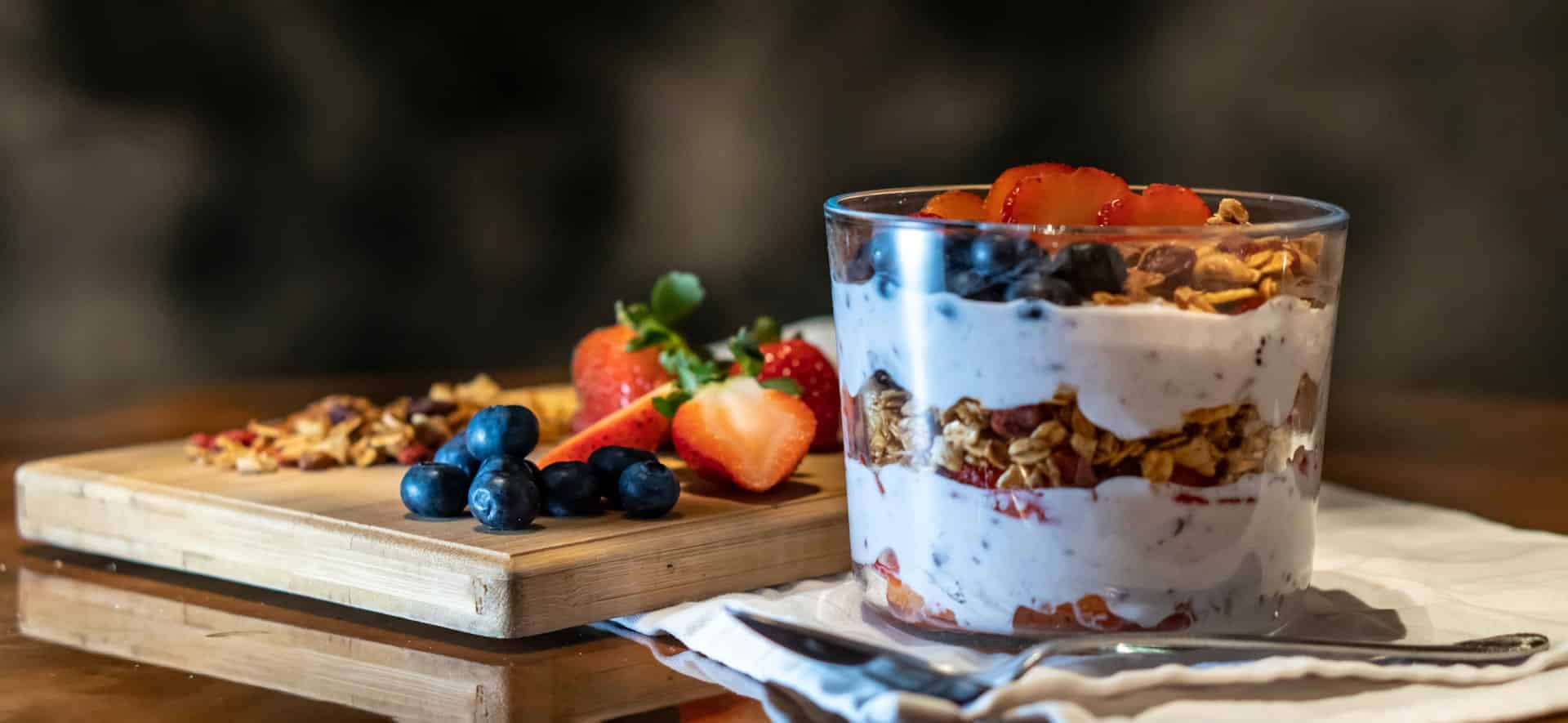
31 Oct Prebiotics, Probiotics, and Dental Health
You probably know that probiotics are good for your gut health, but did you know that they’re good for your dental health, too? Probiotics fight plaque buildup as well as inflammation. They help prevent bad breath, cavities, and even gum disease. But sometimes probiotics need a little help, and that’s where prebiotics come in.
Let’s take a look at the benefits of prebiotics and probiotics for dental health, and how they work together to fight plaque naturally.
Prebiotics vs. Probiotics: How They Work Together
Probiotics are microorganisms that have beneficial effects on human health. You can find them in fermented foods like yogurt, kefir, cheese, pickles, sauerkraut, tempeh, kimchi, and miso.
Prebiotics are the plant fibers that feed probiotics and help them multiply. High-fiber foods like bananas, brown rice, oatmeal, apples, leafy greens, seaweed, beans, onions, and garlic all have prebiotics. Xylitol is a prebiotic, too.
Together, probiotics and prebiotics form “synbiotics” that help balance the microbiome in your digestive system, starting in your mouth. They inhibit the growth of harmful, plaque-forming bacteria, and neutralize the acids that erode your tooth enamel and irritate your gums.
Fighting Cavities on the Molecular Level
Our bodies are full of microorganisms. Some are good, some are bad. For example, the bacteria Streptococcus mutans is one of the main causes of dental decay. It causes the acid attacks that lead to cavities and gum disease. Another microorganism, Candida albicans, helps those bad bacteria stick to your teeth and form colonies of plaque.
Probiotics like Lactobacilli plantarum and L. acidophilus work together to prevent plaque buildup. They help balance the pH of your saliva to reduce acid attacks and keep plaque from sticking to your teeth. They even produce beneficial antioxidants that reduce inflammation and help you fight gum disease.
Dental hygiene products like mouthwash reduce your risk of cavities and gum disease by killing off all the harmful microorganisms in your mouth. However, when you use mouthwash, you’re killing all the beneficial microorganisms as well. That’s why it’s important to eat a healthy diet that includes probiotics and prebiotics, so you can replenish the beneficial microbes you lose when you clean your teeth.
What Are the Best Probiotics for Oral Health?
The best group of probiotics for dental health are those in the Lactobacillus family:
- L. acidophilus
- L. casei
- L. plantarum
- L. reuteri
- L. rhamnosus
Bifidobacterium is another beneficial probiotic, both for gut health and dental health. It helps your body fight infections and produce the B vitamins that support good dental health.
Yogurt is probably the first food you think of when it comes to probiotics.
However, if you want to take advantage of its dental health benefits, it’s best to stick with plain, unsweetened yogurt. Sugar feeds plaque and triggers acid attacks, and most yogurts have a high sugar content.
Try adding some plain yogurt to your morning oatmeal, or to a spinach or lentil curry, to get the benefits of both probiotics and prebiotics. Or, sweeten your plain yogurt with tooth-friendly sugar substitutes like xylitol or stevia.
Holistic Dental Care in Prescott, Arizona
But before you go out and buy a dental probiotic supplement, make an appointment at Prescott Dentistry. We’re a holistic practice that focuses on prevention first. If you ever have questions about how natural remedies like prebiotics can benefit your dental health, please let us know! Contact us at 928-445-1660 or send us a message online to schedule an appointment today.
Photo by amirali mirhashemian on Unsplash used with permission under the Creative Commons license for commercial use 10/28/24.



